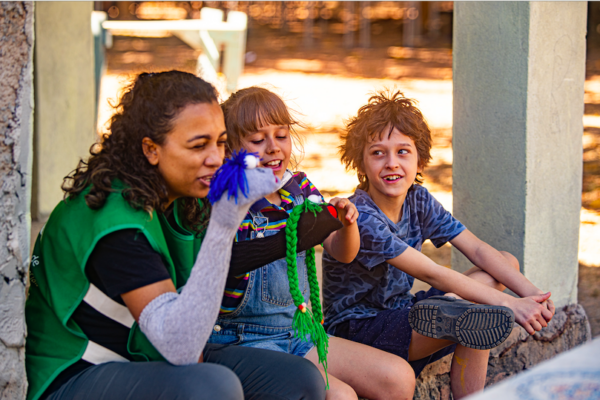A group of 15 Adventist education supporters in Brazil’s Midwest region conducted a mission trip in the São Domingos indigenous community in Luciara, Mato Grosso, with Adventist Development and Relief Agency (ADRA) volunteers in Araguaia. The initiative, held in the first week of July, sought to support the local indigenous school, promote pedagogical training for teachers, and share informative lectures for the community.
ADRA said it is ready to welcome volunteers regularly to serve the population around São Felix do Araguaia in Mato Grosso. Leaders reported that the agency’s goal is to serve the population in need living nearby and the region’s indigenous community.
This time, Krehawa village was chosen to receive the volunteer group, made up of representatives of Adventist Education in Brazil’s Midwest. The site has a community of 210 Karajáindians and a state Indian school for children and teens. Hadori Indigenous School, as it is named, has 110 students and eight teachers.
“The pedagogical training provided was based on the areas of greatest need, as reported by those teaching at the school,” Rafaela Reis, one of the project organizers and coordinator of ADRA in Araguaia, explained. “We covered writing, mathematics, and Portuguese,” she said.
Reis pointed out that the lectures for the community followed a similar criterion. The themes chosen were strengthening families, domestic finances, and issues related to alcohol and drug problems. “Lectures were directed to teenagers and their parents,” Reis said. “There were three nights of lectures, and the space filled to its maximum capacity of 130 people.”
During the day, volunteers dedicated themselves to improving the educational facilities. “The group carried out deep cleaning throughout the building, removing stains from the walls,” Reis said. “They also painted the exterior and interior walls of the school building, and renovated three classrooms, the management and coordination room, and the two bathrooms of the school.”
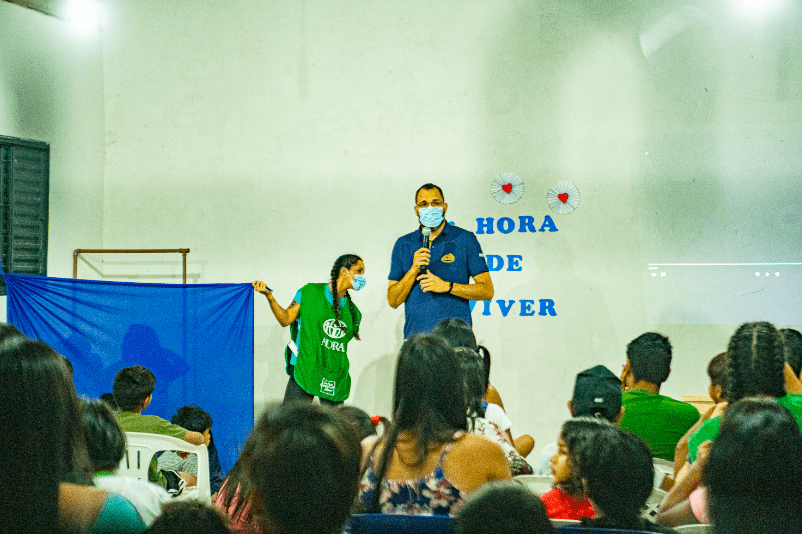
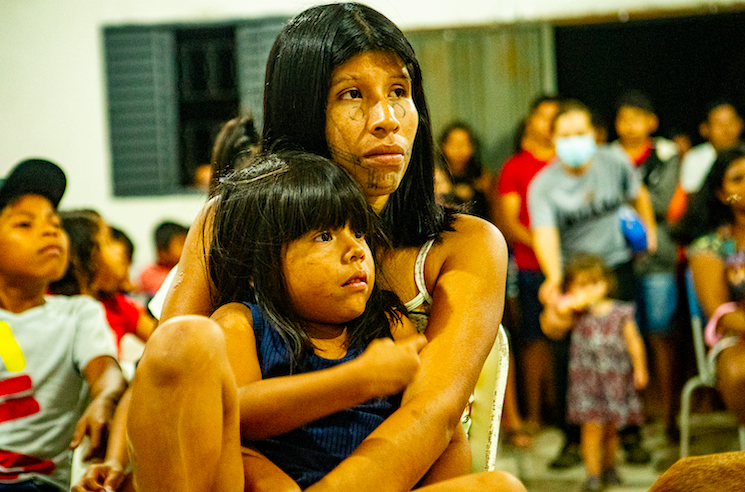
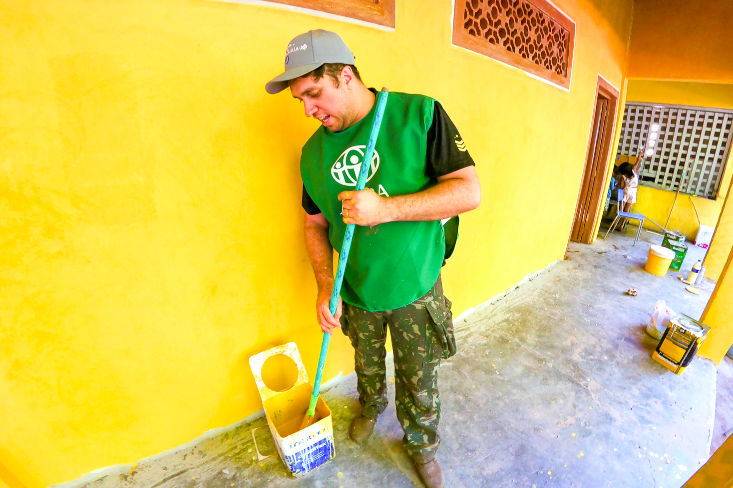
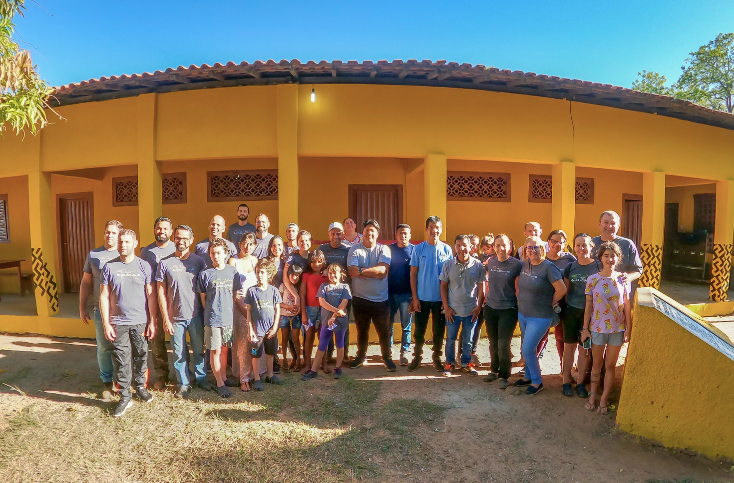
According to Luiz Carlos Mauri, one of the leaders of the São Domingos community, the school’s renovation came at a good time after eight years without maintenance work. “The school had broken fans, well-worn paint, and damaged slates. Now it looks beautiful. The students, the community, and the chief said they are very happy with the renovations,” he said.
The group also offered a puppet creation workshop for the school’s teachers. During the workshop, teachers created their own puppets based on Karajá characters and cultural identity. Volunteers also held puppet shows for children during the evening lectures.
For Samuel Bruno, Adventist Education director in Brazil’s Midwest, this collaboration has a definite goal: “We want to reinforce our purpose in Adventist Education, which is to prepare to serve to others. As leaders, we need to be the first to live out this concept in practice,” he said.
Geise Kelly Gomes is secretary of Adventist Education in Brazil’s Midwest and participated in her first mission trip with the group. “What struck me the most was how receptive people were. Seeing the joy in the eyes of every child was priceless,” Gomes said.
She also talked about what she learned during the initiative. “Their culture is gradually getting lost, and they are fighting for preservation. They are open to modernity, but they just don’t want the culture to be forgotten,” Gomes said.
After the renovation of the school, volunteers still had time to decorate some of the rooms with figures adapted to the local language and culture, organizers said.
“My advice to the person who is interested in participating in a project like this is to study the culture and customs of the place so that this experience is as natural as possible, avoiding situations that may create barriers or hinder integration with the community to be served,” Edimar Junior, director of Adventist Education for Western Mato Grosso, said.
Junior said this was his third mission trip. All three of the trips, he explained, were directed to different places and cultures. “Projects like this reinforce our spirit of service,” he said.
The original version of this story was posted on the South American Division Portuguese-language news site.


